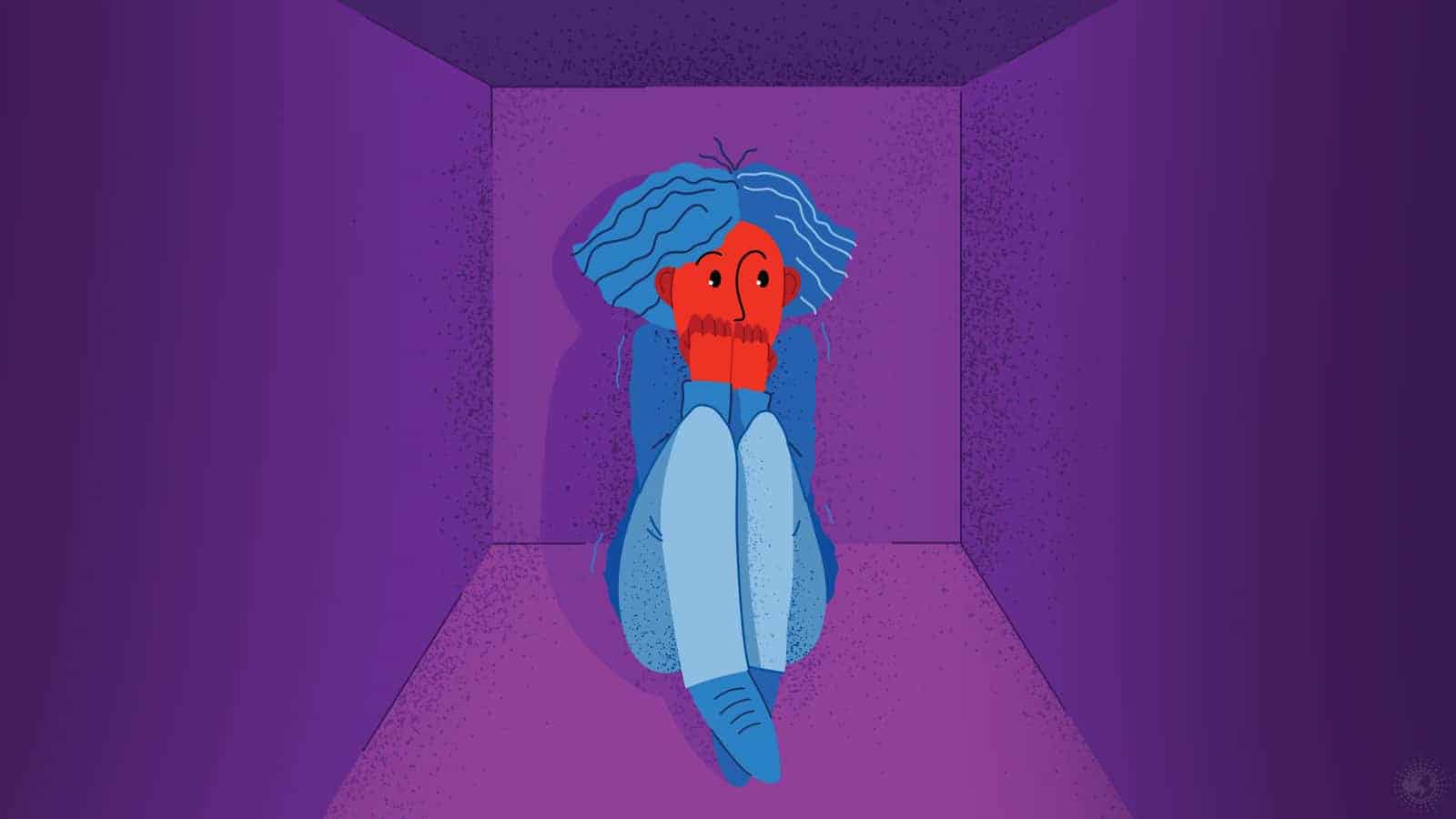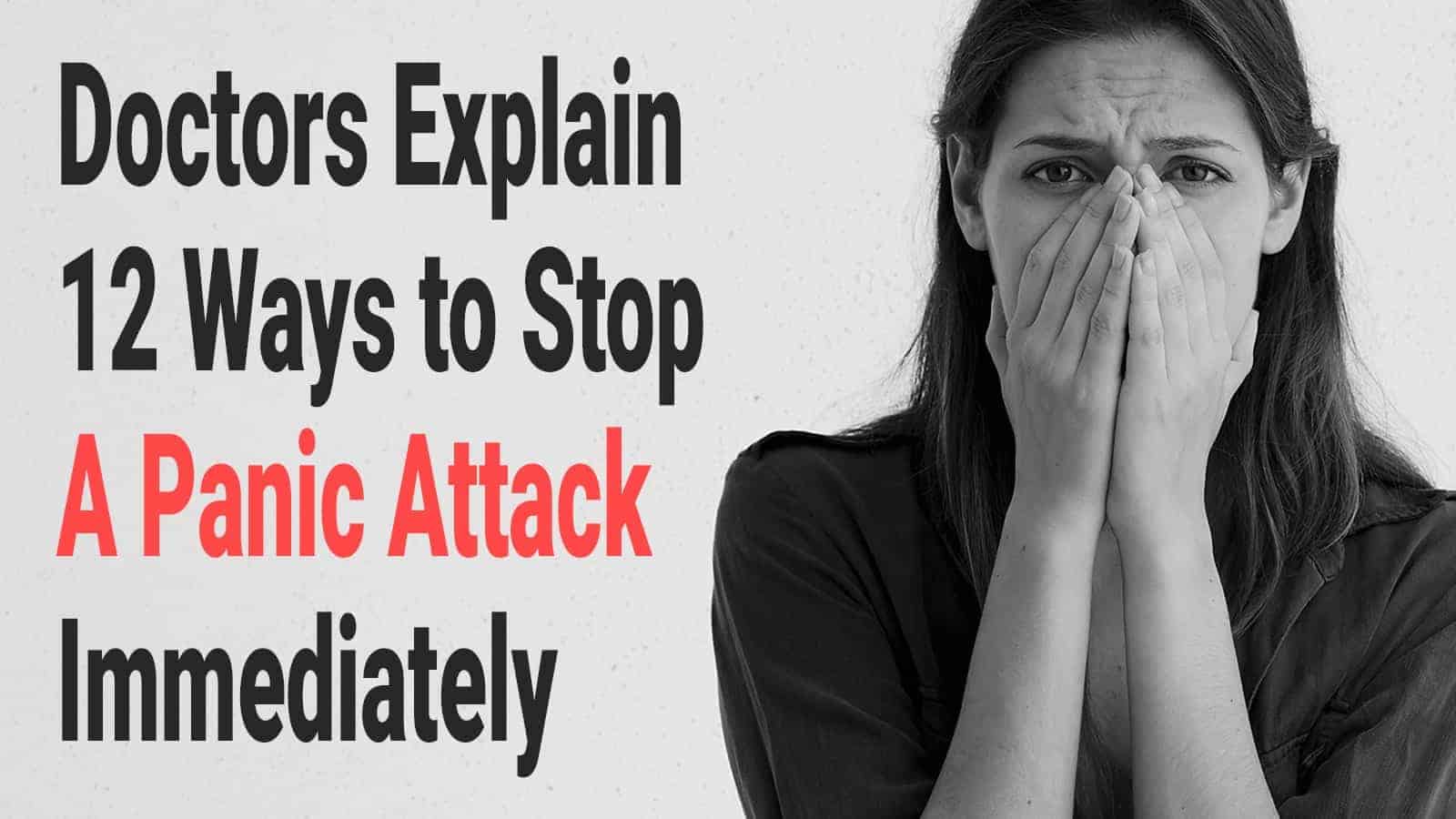A panic attack involves an overwhelming sensation of fear, paranoia, and anxiety, balled up alongside heart palpitations, sweating, and even breathing difficulties. They are highly unpleasant, and those who get them often can attest to how tiring and scary they can be.
If you get regular panic attacks, you may be doing certain things that are contributing to your risk of them.
Here are 15 hidden habits that can trigger a panic attack.
1. Creating Crisis out of Drama
Sometimes things feel much more significant than they really are. At times, we all can exaggerate a problem by overthinking and making it seem much bigger than it really is. This is called catastrophizing, which is the misinterpretation of events or physical sensations as considerably worse than they are. These misinterpretations can become triggers for a panic attack.
It is often the case that many people with anxiety cannot distinguish the difference between what is possible and what is probable. They may consider something extremely unlikely a cause for concern, even though the risks are minimal. As an example, panic attacks can be triggered by:
- Assuming a heart fluttering that you are feeling is a heart attack
- Thinking that something bad happened to your partner because you have not heard from them for a while
- Assuming someone hates you because they have not replied to your message yet
2. Spending A Long Time On Social Media
Social media and the internet have provided many benefits, including linking us to distant family and friends. But an excessive amount of time spent on social media can be extremely detrimental to mental health and positive thinking, especially in relation to anxiety. Here’s what might happen if you stay on social media for too long:
- You may start comparing yourself with what you see others posting about themselves
- You could get more worried about the things you read online that others might have shared on their pages
- Others might attack you for bad phrasing, personal opinions, or appearances
- You might trigger a panic attack from all the negativity you are exposing yourself to
3. Road Rage
Driving can be very stressful, which is why it’s really no surprise that people can experience road rage that almost seems to change their personalities entirely. This type of anger is especially prevalent when running late or stuck in traffic.
However, getting angry on the road is pointless and only serves to increase your heart rate and tense your muscles and send your body into full anxiety mode. Experiencing all this stress can cause you to feel even more anxious, potentially triggering a panic attack.
4. Overcommitting
Everyone needs time for rest and recuperation, as rest is an important part of managing your anxiety. Overcommitting, therefore, presents with it the danger of removing all free time, hence reducing any time you could have used for rejuvenation.
No matter your schedule, there is always a way to get in some mindful rest. This will keep your anxiety levels down and also promote better health overall.
5. Hyperventilating
Hyperventilating is one of the top symptoms of a panic attack; somewhat ironically, it can also trigger one. When you hyperventilate, your breathing becomes fast and shallow. Then, your body signals to your brain to tell it that something is going wrong. This can then become a vicious cycle – hyperventilating causes panic, which causes more hyperventilation.
One positive way to overcome this is through diaphragmatic breathing, which can effectively control your breathing and stop the attack. Diaphragmatic breathing is the process of inhaling through your nose for four seconds, exhaling through your mouth for six seconds, and finally pausing for two seconds before repeating the cycle three times, minimum.
6. Magnification
Magnification can be defined as the act of making an event more serious than it initially was. This can lead you down a mental path that believes that current events are world-ending, even if they are simply unfavorable.
For example, people with phobias often tell themselves that if they experience their phobias, it may kill or severely injure them. Of course, this is typically not the case for most phobias. This style of thought can be overcome with positive thinking, but it requires much effort! Here are some examples of magnified statements:
- Any elevator may drop at any moment, resulting in death.
- Brushing against trash with bare skin can cause germs to contaminate the body and kill it through infection or illness.
- Touching an insect will result in severe danger and death through unknown means.
7. Skipping Meals
Skipping meals can result in severe blood sugar dips, potentially leading to energy and mood crashes. Naturally, this can lead to flares in anxiety, increasing the likelihood of a panic attack. Remember, eating a balanced diet is crucial to positive health, and skipping meals will only harm you in the long run. Always remember to:
- Eat consistently
- Make sure your meals are nutritious
- Eat something on the go if you are too busy for bigger meals
8. Eating Poorly
There is a clear link between your mental health and your diet. Bad foods affect your entire body, and your brain is, after all, a part of your body. Poor nutrition can lead to panic attacks as your body struggles to regulate its consumption.
Opt for high-protein meals with moderate wholegrain carbohydrates for energy and serotonin boosts. Avoid:
- Foods with a high sugar content
- Processed food
- Fat-free food
- Fried food
- Alcoholic beverages
9. Procrastination
Procrastination may be a short-term solution to relieve some anxiety, but doing it too much can be addictive and may form a habit that is very difficult to break. If you keep putting things off to the last minute, stress builds up over time, and panic attacks become more commonplace.
10. Overthinking
Overthinking and over-analyzing a situation can cause a disconnect from reality. One tiny, simple thing can be turned over and over until it is no longer what it originally was, but an amalgamation of your anxiety and fear. It goes without saying that this can, eventually, trigger a panic attack. Here are some examples of situations where you may overthink:
- After a social interaction, you overthink every word you said and each reaction you received for them and eventually conclude that these individuals disliked you
- Spilling something onto a friend or family member and fearing that this action has caused them to hate you or write you off as clumsy
- Spend hours analyzing a gesture shown to you by a colleague, trying to decide if it was a positive one or not with no real way of finding out
11. Isolation
For those that often deal with depression, anxiety, and panic attacks, it may feel like the safest thing to do is to isolate yourself. However, isolation is not a solution for your mental health problems, and it can even worsen symptoms of panic.
Loneliness is bad for both your mental and physical health, and it can even shorten your lifespan, increase stress levels, and weaken the immune system. As such, some socializing is needed to ensure the health of both body and mind. You should make spending time with family or friends a regular endeavor when you can.
But what about days when you feel like you can’t do anything at all? You can still be productive without socializing, which will be infinitely better for your health. You can:
- Go for a walk outside.
- Engage in hobbies you love
- Do chores around the house.
- Have a self-care day
- Visit the mall for some shopping.
- Catch a movie at a cinema
- Eat out at a restaurant you’ve wanted to try.
12. Fearing A Panic Attack
It is often said that fighting off something you fear is more complex, and the same goes for panic attacks. In a twisted sense of irony, panic attacks can be self-reinforcing, meaning that being worried about them can trigger them, and triggering them can lead to a fear of them.
If handled poorly, this turns into destructive patterns over time. As such, work on staying positive. Understand that panic attacks are not the end of the world and can be managed if you dare to face them.
13. Emotional Reasoning
Emotional reasoning is what happens when your brain comes to a conclusion based on your feelings, regardless of whether it is rooted in a rational truth or not. Just because you feel something does not mean it is true!
Instead of responding emotionally to everything, gather facts, information, and evidence first. Take some time to breathe, then approach the situation logically before coming to your conclusion.
14. Not Exercising
They say that a healthy body breeds a healthy mind – and they’re right! Exercise can be a great help in keeping the brain healthy and promoting positive thinking. This is because exercising releases positive chemicals, known as hormones, such as dopamine and endorphins. These feel-good hormones make you feel fabulous. Here are some other examples of what exercise can do:
- Boosting libido
- Improving posture
- Reducing disease risk
- Enhancing cognitive function
- Reducing fatigue
When you don’t exercise, you’re causing your body and mind to fall into a slump. This pattern can make you more susceptible to developing panic attacks as you don’t get to work off nervous energy or increase good hormone production.
15. Jumping To Conclusions
Jumping to conclusions is rushing to a finalized thought without backing up sufficient evidence or information. It is somewhat similar to emotional reasoning, but this doesn’t require strong feelings – it just requires a lack of knowledge.
When you jump to conclusions, you allow your brain to make large leaps in logic to get to decisions and ideas. When these ideas and decisions are negative, they can trigger panic attacks due to their suddenness. Here are some scenarios that illustrate how this can affect you:
- Finding out that you answered a question incorrectly on a test leads you to believe that you failed the examination.
- Being left on “read” by a friend makes you believe they are ignoring you due to something inconsequential.
- After being told half of a report regarding something that affects you, you are already ten steps ahead in the wrong direction and seeking solutions that will be ineffective.
Final Thoughts On Some Hidden Habits That Can Trigger A Panic Attack
Panic attacks can be rare, they can be frequent, and they can be a symptom of a disorder. If you are experiencing panic attacks that are severe, impede your daily life, or are very frequent, speak to a doctor or mental health professional.


















 Community
Community

